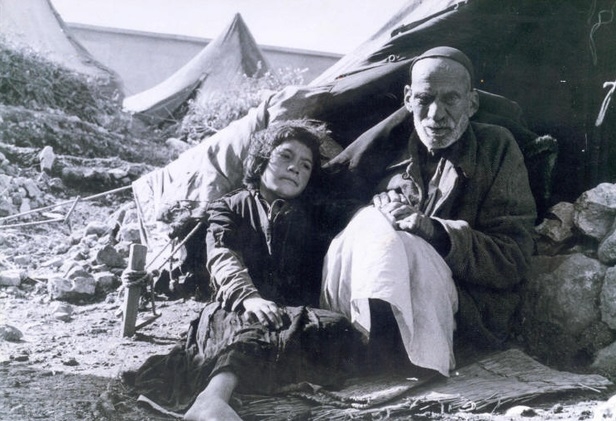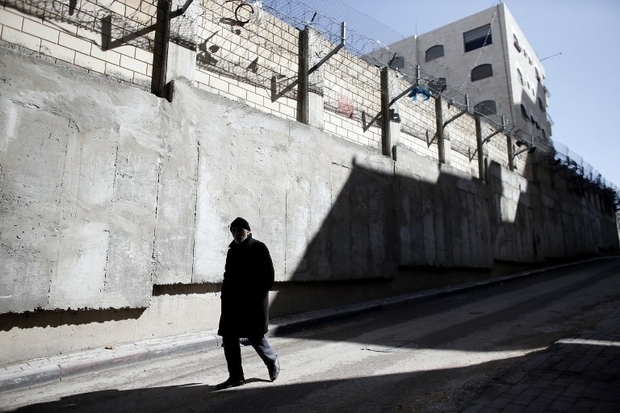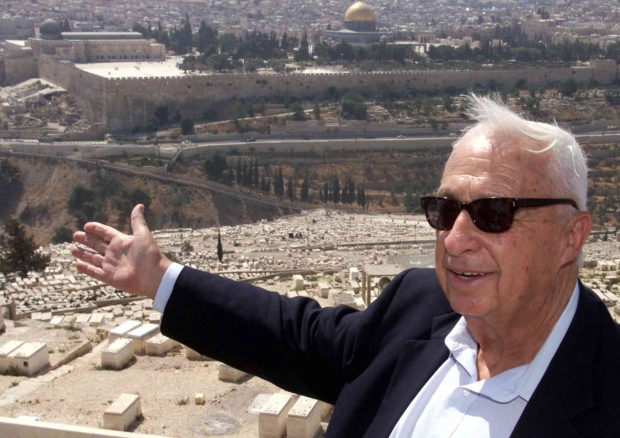ANALYSIS: Will Netanyahu risk exposing one of Israel’s secrets?

NAZARETH - As Israeli legislators returned to parliament this week, ending the long summer recess, Benjamin Netanyahu's government announced a packed agenda of reforms designed to push Israel further to the right.
Legislative proposals include weakening the supreme court's powers of judicial review, cracking down on left-wing civil-society organisations, expanding Jerusalem's boundaries to include more Jewish settlements and allowing the government to forcibly deport mainly African asylum seekers.
But none is likely to prove as controversial – or gain as much attention – as a measure concerning Israel's status as a Jewish state.
Its purpose is to give a constitutional-like standing to Israel's definition as a state that belongs not to its citizens – as is the case in a liberal democracy – but to all Jews around the world, including those with no connection to Israel.
Additionally, the bill is expected to downgrade the status of Arabic, the mother tongue of a fifth of Israel's population. It will also require the Israeli courts to give due weight in their rulings to Jewish religious law and Jewish heritage.
Who opposes the law
Basic Laws are much harder to reverse than ordinary legislation. Various versions of the Jewish nation-state bill have been under consideration since a first draft was introduced in 2011 by Avi Dichter, a former head of the Shin Bet, Israel's secret police.
But after eight years as prime minister, Netanyahu appears impatient for progress. He insisted in May that the legislation must pass as soon as possible. A special committee has been hastily drafting a final version during the past few weeks.
After eight years as prime minister, Benjamin Netanyahu appears impatient for progress. He insisted in May that the legislation must pass as soon as possible
Opposition to the bill comes from three quarters in parliament, each with very different concerns.
The first is the Joint List, a coalition of parties representing Israel's large minority of Palestinian citizens - one in five of the population - who are the chief targets of the proposed legislation. However, their voice carries no weight in either the parliament or the government.
The second group are the small hardline religious parties in the coalition government, who have always had an ambivalent, if not hostile, attitude toward Israel as a state. They believe that Jews can be sovereign only when the Messiah reveals himself. In practice, however, if the legislation is carefully phrased, then these parties may not put up much resistance.
Most troublesome for Netanyahu is likely to be the antipathy from the centre-left parties on the opposition benches, especially the former Labour party, now rebranded as Zionist Union. Most of its legislators reject the proposed Basic Law, but not necessarily because they disagree with its provisions.
The age-old deception revealed?
The Zionist Union's attitudes towards the Jewish nation-state bill are complex. They are rooted in the party's role in founding Israel as a Jewish state in 1948, on the ruins of the Palestinians' homeland.
Mohammed Zeidan is director of the Nazareth-based Human Rights Association, an advocacy group for Israel's Palestinian citizens. He said that Labour's leaders, especially the nation's father, David Ben Gurion, carefully crafted Israel's image in a way that would hoodwink most outside observers into believing it was a Western-style liberal democracy.
"The goal of the state's founders was to conceal the structural discrimination," he told Middle East Eye. "The mistake was to believe that a Jewish state can be a democratic one, and that it can uphold universal values and rights."
In fact, tellingly, the chief objections from the centre-left to Netanyahu's Basic Law are not that the measure is immoral or undemocratic in denying Israel's 1.7 million Palestinians equal status with Jewish citizens but rather that it is "unnecessary," "superfluous" or "gratuitous".
In 2014, when a draft of the legislation was brought before the parliament, the then-leader of Zionist Union, Isaac Herzog, observed: "Only a prime minister lacking in self-confidence, without a vision and a plan, needs laws that deal with the obvious, that will not improve any Israeli citizens' lives."
Officials are often breaking the law if they do not discriminate. It is their job to discriminate
- Mohammed Zeidan, director of the Human Rights Association
Similarly, Israel's liberal Haaretz newspaper has called the legislation "completely redundant". Abraham Foxman, as head of the New York-based Israel lobby group the Anti-Defamation League, labelled it "well-meaning but unnecessary".
In other words, the ideological successors to Israel's founding generation reject the Basic Law not because it will fundamentally alter Israel's character but because it risks dragging its ugliest secret – well-concealed for nearly seven decades – into the bright light of day.
They fear that the Israeli far right will show Israel's hand by clearly codifying its status as a state belonging to, and privileging, Jews around the world rather than to its own citizenry, which includes a large proportion of Palestinians.
One law for Jews, another for Arabs
It is important to understand how Israel's founders deliberately obfuscated the apartheid-like legal and administrative structures they created to appreciate why so much is at stake for today's centre-left.
Israel's Declaration of Independence, published at the state's creation in May 1948, was effectively a sophisticated exercise in public relations. It famously promised to "ensure complete equality of social and political rights to all its inhabitants irrespective of religion, race or sex".
What is most noticeable is that Israel has two citizenship laws. These confer different rights, based on whether a citizen is Jewish or not. In the United States during the mid-1950s, the Supreme Court ruled in a landmark decision amid the civil rights struggle that "separate is inherently unequal" – and so it has proved in Israel too.
Israel's Law of Return of 1950 opened the door to all Jews around the world, allowing mass Jewish immigration. Any Jew who landed in Israel could instantly receive citizenship, as many hundreds of thousands of Jews did during the next seven decades.
The Citizenship Law was designed to guarantee a large perpetual Jewish majority by blocking access to citizenship for non-Jews
But Israel wanted exactly the opposite outcome for Palestinians. The result? It created a separate law, the Citizenship Law of 1952, for non-Jews. Its primary purpose was to strip the right to return home from the 750,000 Palestinians expelled by Israel four years earlier, during the Nakba, the Arabic word for "catastrophe".
Longer term, however, the Citizenship Law was designed to guarantee a large perpetual Jewish majority by blocking access to citizenship for non-Jews.
Today, there is only one path by which a non-Jew can gain citizenship in Israel – by marriage to an Israeli citizen. This exception is allowed because only a few dozen non-Jews qualify each year, thereby posing no threat to Israel's Jewishness.
Under legal challenge, Israel passed an amendment to the Citizenship Law in 2003 to ensure that the vast majority of Palestinians in the occupied territories, and Arabs from many neighbouring states, cannot qualify for Israeli residency or citizenship under the marriage provision.
National rights trump citizenship
The Law of Return and the Citizenship Law are two of nearly 70 Israeli laws – the number is growing – that explicitly discriminate based on whether a citizen is Jewish or Palestinian. A legal group, Adalah, representing Israel's Palestinian citizens, has compiled a database of such measures.
But Netanyahu's Basic Law threatens to expose the deeper significance of this bifurcated citizenship structure.
Israel's 1.7 million Palestinian citizens, observed Zeidan, are discriminated against in a way that goes beyond that practiced against minorities in democratic states: that is, by the arbitrary, informal or unregulated decisions of officials and state bodies. In such democracies, officials are usually breaking the law when they discriminate against minority groups.
But in Israel, Zeidan pointed out, "officials are often breaking the law if they do not discriminate. It is their job to discriminate."
Individual rights are enjoyed by all citizens by virtue of their citizenship, whether they are Jews or Palestinians. In this regard, Israel looks like a liberal democracy. But Israel also recognises "national rights," and reserves them almost exclusively for the Jewish population.
National rights are treated as superior to individual citizenship rights. So if there is a conflict between the two, the Jewish national right will invariably be given priority by officials and the courts.
The privileging of Jewish national rights is equally clear in the way Israel treats its most precious material resources: land and water
How this hierarchy of rights works in practice is neatly illustrated by Israel's citizenship structure. The Law of Return establishes a national right for all Jews to gain instant citizenship – as well as the many other rights that derive from citizenship.
The Citizenship Law, on the other hand, creates only an individual citizenship right for non-Jews. Israel's Palestinian minority can pass their citizenship "downwards" to offspring but cannot extend it "outwards," as a Jew can, to members of their extended family – in this case, the millions of Palestinians who were made refugees by Israel in 1948 and their descendants.
This privileging of Jewish national rights is equally clear in the way Israel treats its most precious material resources: land and water.
The commercial exploitation of these key resources is treated effectively as a national right, reserved for Jews only. In practice, noted Sawsan Zaher, a lawyer with Adalah, access to these resources is restricted to Jews through hundreds of rural communities across Israel, including the best-known – the kibbutz.
These rural communities are the places where Israel has made available vast swaths of land and offers subsidised water. As a result, almost all commercial agriculture and much industry is located in these communities.
"The committees govern entry to 550 communities in Israel, ensuring that the resources they control are available only to their Jewish populations," Zaher told MEE. "These committees are one link in a chain of racist policies, segregation and exclusion by the state towards Palestinian citizens."
The primary purpose of these rural communities is to enforce Israel's "nationalisation" of 93 percent of its territory. This land is "nationalised" not for Israeli citizens – as no Israeli nationality is recognised – but for a global Jewish nation.
Meanwhile, the fifth of the population who are Palestinian are confined to less than three percent of Israeli territory, after most of their lands were confiscated by the state and are now held in trust for Jews around the world.
No new Palestinian community has been built since Israel's creation 70 years ago, while dozens of Palestinian villages have been "unrecognised" by a 1965 Planning and Building Law. The 120,000 inhabitants of these villages, criminalised by this planning law, cannot build a home legally and are denied public services.
The real danger of Basic Law
Observers say that Netanyahu's Basic Law risks exploding a seven-decade-old myth about Israel: that it is a liberal democracy where Israeli citizens, Jews and Palestinians alike enjoy equal rights.
The combination of the Law of Return, which entitles all Jews around the world to instant Israeli citizenship, and Israel's land laws, which reserve ultimate ownership to Jews as a global nation, has emptied citizenship of its accepted meaning.
As Israeli scholars have noted, Israel should be classified not as a liberal democracy but as a fundamentally non-democratic state called an ethnocracy.
Ariel Sharon, a famous general and later a prime minister, once described world Jewry as the "landlords" of Israel. That leaves Palestinian citizens, one in five of the population, as little more than resident aliens or temporary guest workers, on licence so long as they do not threaten the state's Jewishness.
Israeli scholars have noted that Israel should be classified not as a liberal democracy but as a fundamentally non-democratic state called an ethnocracy
Israel's modern centre-left, Ben Gurion's heirs, rightly fear that Netanyahu and the far-right are about to air Israel's very dirtiest secret in public. Their Basic Law will reduce a complex and opaque system of laws and practices to one simple and easily intelligible Basic Law that may evoke comparisons with apartheid-era South Africa.
Or as Zaher observed, if Netanyahu's Basic Law is passed, it will "send a clear and dangerous political message to Palestinian citizens of Israel that you are not wanted, that you are not equal citizens, that, in fact, the state is not yours".
Today's far right cares much less about world opinion than Israel's founders did. In their zealotry, they wish to eradicate the last hold-outs among the liberal Jewish establishment – such as the supreme court, civil society and parts of the media – so that they can advance their more aggressive brand of Zionism, launch a new wave of anti-democratic legislation and intensify the settlement project.
The real danger of Netanyahu's Basic Law is not that it will change what Israel is, warned Zeidan. "What it does instead is provide a much more solid platform for what the far right in Israel intends to come next."
This article is available in French on Middle East Eye French edition.
New MEE newsletter: Jerusalem Dispatch
Sign up to get the latest insights and analysis on Israel-Palestine, alongside Turkey Unpacked and other MEE newsletters
Middle East Eye delivers independent and unrivalled coverage and analysis of the Middle East, North Africa and beyond. To learn more about republishing this content and the associated fees, please fill out this form. More about MEE can be found here.










